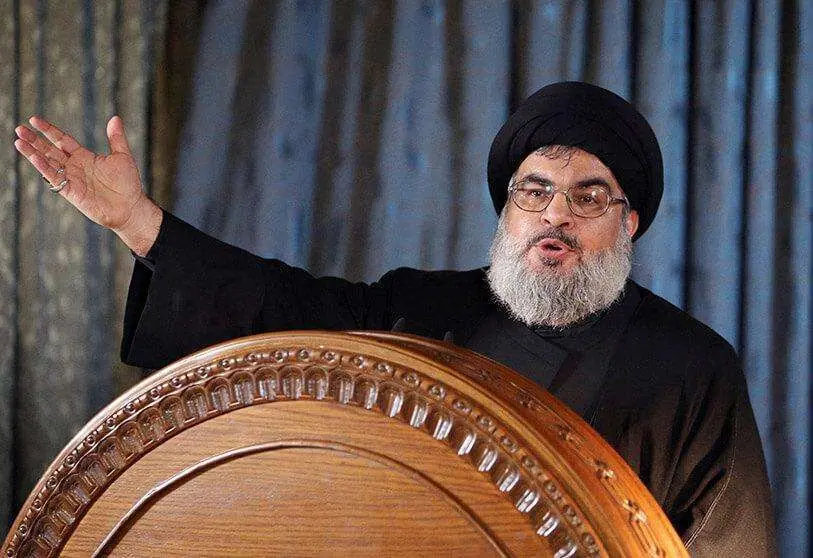Hezbollah calls the maritime deal a "great victory" but denies normalisation of relations with Israel

Hezbollah Secretary General Hassan Nasrallah has spoken out about the recent historic maritime agreement reached by Israel and Lebanon. Nasrallah called the deal a "great victory" for Beirut. "Our mission is complete," Nasrallah declared in a televised speech. He stressed, however, that the agreement is not an "international treaty" and does not imply "recognition of Israel". Nor does it provide a basis for normalisation between the two countries.
Following this agreement, Hezbollah has also ended "special" mobilisation against Israel after threatening to attack for several months. "All exceptional and special measures and mobilisation carried out by the resistance for several months are now declared over," Nasrallah explained.
ℹ️??Hezbollah ends 'special measures' against Israel after sea deal:Lebanon's Hezbollah will end an "exceptional" mobilisation against Israel, its leader Hassan Nasrallah says after Lebanon and Israel struck a maritime border deal, declaring its mission "accomplished". pic.twitter.com/FOT34nLP8D
— ?World News 24 ??? (@DailyWorld24) October 27, 2022
After months of indirect talks brokered by Amos Hochstein, the US envoy for international energy affairs, Israel and Lebanon on Thursday signed the historic agreement that establishes a maritime border between the two countries and delineates their economic zones.
"We have heard of the Abraham Accords. Today opens a new era. It could be the Amos Hochstein agreement," said Lebanon's chief negotiator and deputy speaker of parliament, Elias Bou Saab, referring to the normalisation between Israel and several Arab countries.

Through the agreement, Israel confirms its drilling rights in the Karish gas field, while Lebanon will be able to exploit the Qana field. In this regard, two ministers told Axios that the agreement includes an "anti-Iran" clause that states that Jerusalem will be able to veto the entry of certain companies that want to extract gas from Qana. Companies from a country that does not have diplomatic relations with Israel will be allowed to operate in the field only if Israel approves, the sources said.
Israeli Prime Minister Yair Lapid welcomed the agreement, which was reached just days before the elections. "It is not every day that an enemy country recognises the state of Israel, in a written agreement, before the entire international community," Lapid said.

However, according to Reuters, Lebanese President Michel Aoun has assured that the agreement has no "political implications" and that the issue of the southern border will be resolved in the future through "dialogue". Aoun reaffirmed that the agreement is purely "technical" and that it will not have "political dimensions or impacts that contradict Lebanon's foreign policy". Beirut still does not recognise Israel and, technically, the two countries are at war.
Israel's former Prime Minister and one of the candidates in the upcoming elections, Benjamin Netanyahu, has been one of the critical Israeli voices against the agreement with Lebanon. Netanyahu has described the deal as "a historic surrender" to Hezbollah. "Lebanon got 100%, Israel got 0," he said, blasting Lapid for caving in to Beirut.

The former Prime Minister initially threatened to renege on the deal if he returned to power, but has recently softened his stance as polls have revealed that many citizens support the agreement, notes The New York Times.








